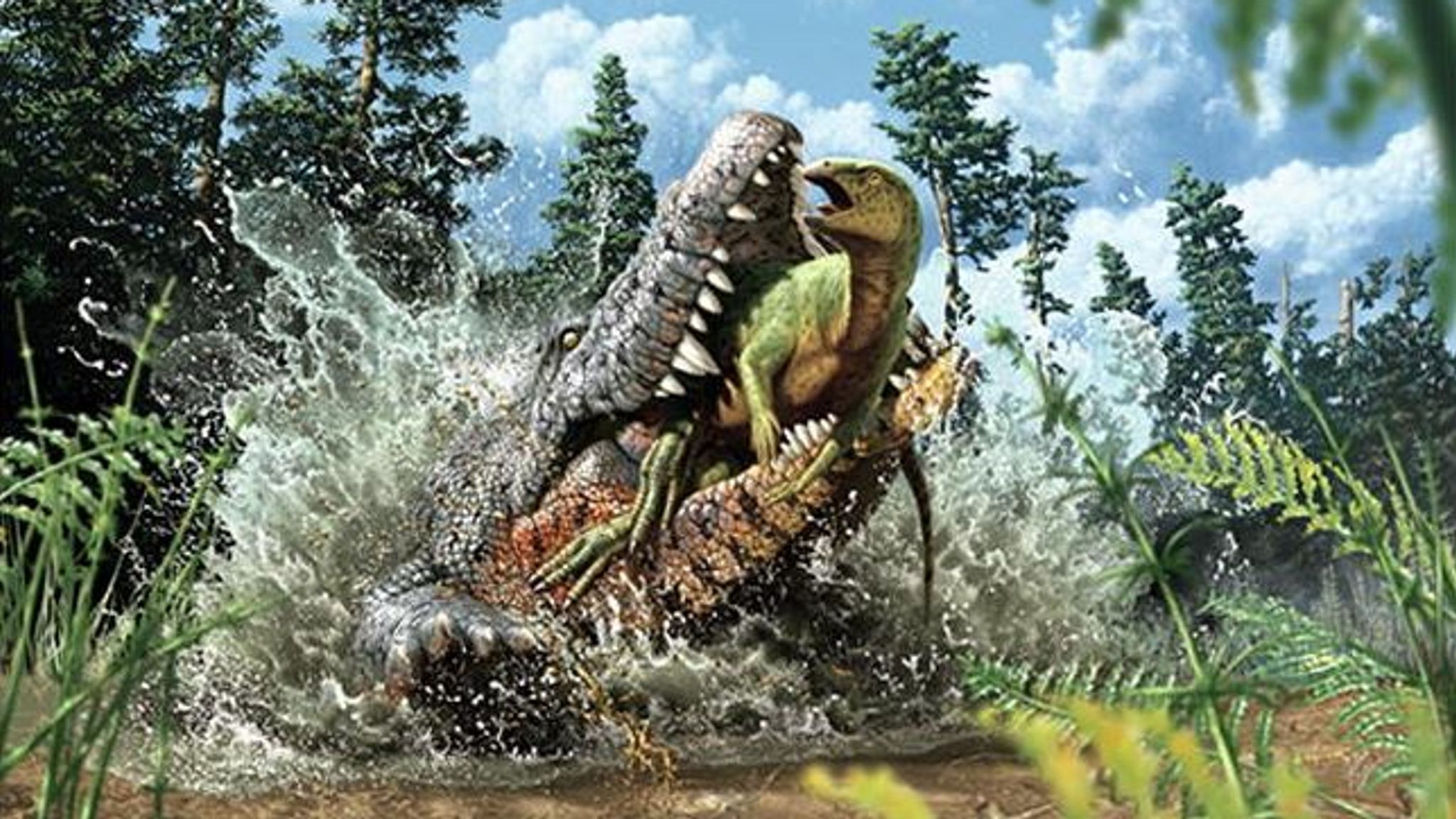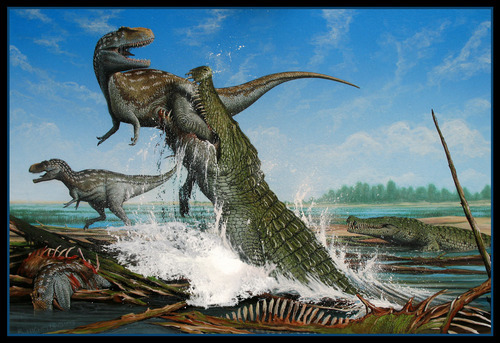
A new crocodile species has been discovered in Queensland, Australia. The animal’s last meal was a young dinosaur. Here’s more about the unknown species.
New crocodile species discovered

A new species of crocodile found is dating back to the Cretaceous period in Queensland, Australia. The organism is 2.5 meters long and according to researchers, it ate a scrumptious last meal consisting of a young dinosaur. They also identified half-digested remnants of a young ornithopod inside its stomach. Published in Gondwana Research on February 11, the study is a discovery. “This is the first evidence of a crocodile preying on a dinosaur in Australia,” stated the Australian Age of Dinosaurs Museum. The Museum is behind the discovery of the species.
The discovery was in Winton Formation, at a sheep station. It is a 95 million-year-old geological rock bed and the location where researchers excavated fossilized bones of a confractosuchus sauroktonos in 2010. The crocodile was first found preserved in a siltstone mass but, took damage, crushing several small bones. Researchers located the bones inside the specimen by using CT scans and X-Ray. 10 months of processing lead to the researchers creating a 3D reconstruction of the Cretaceous creature.
Young dinosaur: Croc’s last meal
This is the first evidence of a crocodile preying on a dinosaur in Australia. Researchers were successful in preserving 35 percent of the sample and recovering an almost complete skull of the animal. However, classifying the young dinosaur was not a successful task. But, researchers stated that the juvenile weighs about 1.7 kilograms. The experts also suggest that the crocodile either killed the dinosaur or foraged it following its death. The discovery is “extremely rare, as only a handful of examples of dinosaur predation are known globally”.
“While Confractosuchus would not have specialized in eating dinosaurs, it would not have overlooked an easy meal, such as the young ornithopod remains found in its stomach,” stated Dr. Matt White. Dr. White is an associate at the museum and is leading the study. “It is likely dinosaurs may constitute an important resource in the Cretaceous ecological food web. Given the lack of comparable global specimens, this prehistoric crocodile and its last meal will continue to provide clues to the relationships and behaviors of animals that inhabited Australia millions of years ago,” he added.
